"... I sing, therefore I am" (updated)
IG CHorama wants the ban on choral singing to be relaxed, and an online petition by numerous choral associations underlines this concern. Signing is still possible until December 18.

Singing in non-professional choirs has been banned since October 29; professional choirs are allowed to rehearse but not to perform. The IG CHorama writes in its press release of November 4 that the ban on choral activities affects more than 4,000 association choirs and ensembles with over 120,000 singers and more than 600 choir conductors. Planning security is lacking. The choral world is helping to get the pandemic under control and reduce the number of infections by applying strict protection concepts for singing in groups. IG CHorama would like to see the ordinance amended so that singing in groups is possible under certain conditions and that professional choirs are also allowed to give concerts under certain conditions. It is prepared to work on a strategy so that the entire choral scene can "regain its radiance".
Petition
"... I sing, therefore I am/Chorsing in times of Corona" is an online petition by numerous choral associationsinitiated by the Swiss Catholic Church Music Association. It is aimed at parliament, the Federal Council and the Federal Office of Public Health. The associations are convinced "that singing in a choir has a positive impact on social life and health, especially in times of crisis". This is why singing in choirs or small ensembles should also be possible again for laypeople, provided that strict protection concepts are adhered to.
The petition is still online until December 18. It will be handed over to Parliament, the Federal Council and the FOPH on December 21.
The initiators wrote on December 14 that they hoped they would "not be the last to be considered in the various easing measures."
Associations involved
The IG CHorama consists of:
A cœur joie ACJ
Association de Soutien aux Chœurs d'Enfants et de Jeunes ASCEJ Association Vaudoise des directeurs de chœurs AVDC European Youth Choir Festival Basel EJCF
Reformed Church Music Association Switzerland RKV Swiss Choral Association SCV Swiss Professional Conductors' Association SBDV Swiss Federation Europa Cantat SFEC
Swiss Catholic Church Music Association SKMV Swiss Children's and Youth Choir Promotion SKJF Swiss Church Choral Federation SKGB
Association of Choral Conductors of Northwestern Switzerland VChN
With the support of the Swiss Association of Music Schools VMS
Four Bernese music prizes
The Canton of Bern is awarding the 2020 Music Prize to the Akku Quintet, composer Xavier Dayer, chansonnier Stephan Eicher and Sabina Schärer and Felix Rohner, who invented the Hang sculpture. The prizes are endowed with CHF 15,000 each.
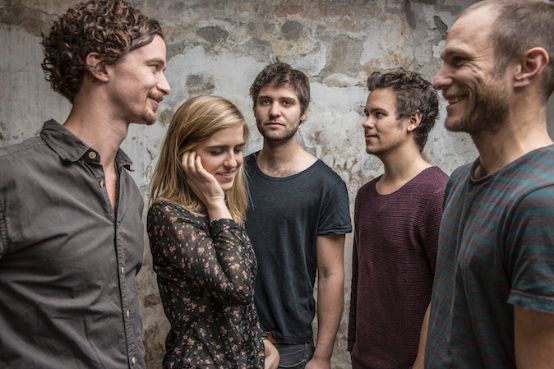
The Akku Quintet was founded by Bernese drummer and composer Manuel Pasquinelli. He is joined by saxophonist Michael Gilsenan, pianist Maja Nydegger, guitarist Markus Ischer and bassist Andi Schnellmann. Since 2010, the five have worked on countless pieces and have released four albums to date, which have also attracted international acclaim.
Xavier Dayer, born in Geneva in 1972, studied composition in his home town with Eric Gaudibert, then with Tristan Murail and Brian Ferneyhough in Paris at the legendary IRCAM, the Institut de recherche et coordination acoustique/musique. He has received awards for his compositions from the Bürgi-Willert Foundation and the Sandoz Foundation (FEMS Prize), among others.
Stephan Eicher, who grew up in Münchenbuchsee in the canton of Bern, has brought "Bärndüütsch" to concert halls around the world - so much so that at the end of the 1990s an audience in Paris sang along enthusiastically to his cover version of Mani Mutter's "Hemmige" without understanding the lyrics exactly.
Sabina Schärer and Felix Rohner are the creators of the sound sculpture Hang, which is played around the globe. Their long-standing collaboration began in the steel band "Berner Ölgesellschaft", the first steel band in the canton of Bern, and encompasses music-making, research into the sound of brass and sculptural work with the hammer.
This year's "Coup de cœur" prize for young talent in the amount of CHF 3,000 goes to Marie Delprat. The Bordeaux-born musician, composer and performer completed her training as a recorder player at the Bern University of the Arts in 2015 under the direction of Michael Form. She holds a master's degree in composition and theory as well as a master's degree in pedagogy.
Bern Culture Prize goes to Helvetiarockt
The canton of Bern has awarded the 2020 Culture Prize to the Helvetiarockt association, which campaigns for a higher proportion of women in the Swiss music industry. Johannes and Katrin Günther, directors of the Bern Minster Children's and Youth Choir, receive the cantonal cultural mediation award.

The Swiss coordination office and networking platform for female musicians Helvetiarockt has been campaigning for a significant increase in the proportion of women in the Swiss music industry since 2009 and is committed to greater diversity in the music business, particularly in jazz, pop and rock. Women are barely represented in the professional music industry at all levels. According to surveys, the proportion of women on Swiss festival stages is around 15 percent and in music production around 2 percent.
The Berner Münster Children's and Youth Choir was initially founded in 2003 as a project choir; it has been organized as an association since 2012. Today it has around 100 singers aged between 5 and 21. Together with them, Johannes and Katrin Günther have built up a repertoire that ranges from Gregorian chant and works by well-known masters (Bach, Mendelssohn) to world premieres and spirituals.
The Canton of Bern Culture Prize is endowed with CHF 30,000 and the Cultural Mediation Prize with CHF 10,000.
Wellington's victory or the Battle of Vittoria
Beethoven every Friday: to mark his 250th birthday, we take a look at one of his works every week. Today on "Wellington's Victory or the Battle of Vittoria".

Many Beethoven biographers once looked with embarrassment at the score of Wellington's victory or the Battle of Vittoria op. 91 - according to Alfred Einstein, it would even be "the low point in his oeuvre". Success and popularity made the musical battle painting (consisting of the two "sections" Battle and Victory Symphony) appear suspicious, not least because of its programmatic presentation. The historical context in which the work was composed was lost sight of.
For more than a decade, Napoleon and his troops had been causing unrest in the military and civil society throughout Europe when news of the victory at Vitoria finally reached Vienna on July 27, 1812: Lord Wellington had already put Napoleon's troops to flight near the Basque city on June 21 and ended French rule over the Iberian Peninsula. This success gave the battered coalition forces the courage they needed to win the Battle of Leipzig in October of that year - the beginning of the end for Napoleon.
When Beethoven's Battaglia and Symphony No. 7 were performed for the first time in Vienna's University Hall on December 8 and 12, 1813, not all battles had been fought, but the decisive ones had. This is the only way to understand the prestigious performance and the success of this concert, which was organized to benefit the Austrian and Bavarian soldiers who had been invalided in the Battle of Hanau. The orchestra of around 100 musicians included the best musicians in the city with Schuppanzigh as concertmaster, Beethoven conducted and the applause was said to be "indescribable": "Mr. von Beethoven's fame was established anew; he was received with enthusiasm at every performance." (Wiener allgemeine musikalische Zeitung)
The postlude, however, was inglorious. Beethoven had originally written the Victory Symphony (the second part of the work) for Johann Nepomuk Mälzel's Panharmonica, a sensational mechanical playing machine at the time. However, Mälzel had performed the work with orchestra in Munich without prior consultation and was also in negotiations with London. Beethoven then instigated legal proceedings regarding the rightful authorship and made his claim clear in an outline of the work's genesis.
First he had "of its own accord ... without money" wrote the Victory Symphony for Mälzel's panharmonica. Then he would have approached him with the request for an arrangement "for full orchestra"which was also realized. However, he, Beethoven, had already had the idea for a large battle music beforehand, which could be played musically on the panharmonica. "not applicable" be. Mälzel mistakenly believes that entitlement as a "exclusive owner of this work" to be able to register, since he - as compensation, so to speak "belonging to machines"hearing aids. However, these were "not useful enough for me".
The proceedings were not concluded, and Beethoven and Mälzel apparently later reconciled. Just how long the battle music actually played a role in the public debate is shown by Gottfried von Weber's review of a piano reduction in 1826, in which the Victory Symphony was described as a significant work. "Tonwerk, - in a sound piece of great demands" is called. During his reading, however, Beethoven made a sign right here and made a fragmentary, undecided remark: "not at all, nothing but an occasional piece, which however -"
Listen in!
Complete cultural lockdown?
In the course of the current debate about another complete cultural lockdown, the Culture Task Force is insisting on clear statements from the Federal Council and expects a seamless support system including a revitalization strategy. It regrets that the cultural sector is not involved in the discussions about the planned measures.

As the cultural sector is once again unable to comment on the measures currently under discussion, the Taskforce Culture on December 9 with a letter to the Federal Council. The six key points and the list of current gaps in support are quoted below:
"1 We welcome the fact that the federal government is taking the reins again. However, we also expect this with regard to compensation. We have been calling for a uniform policy throughout Switzerland to deal with this crisis since the beginning. In fact, from the Federal Council's point of view, the extraordinary situation is apparently prevailing again. The Federal Council should also formally adopt it and act accordingly.
2) In the diverse Swiss cultural sector, the question of a lockdown is being discussed in the same way as in other affected economic sectors, such as ski resorts or the Federal Council: some would like to continue offering culture even with many conditions and restrictions, while many others are already ruling themselves out because cost-covering events are no longer possible under these circumstances.
3. but one thing is clear: in the event of a further cultural lockdown, suitable support measures must be accessible to all cultural players without restrictions. We already pointed out last week that this is not possible with the current Covid-19 pandemic.
law is not the case. These loopholes must now be closed. Also
The federal government must take the reins here. The limits of federalism are clearly evident in the implementation of support measures.
4 At present, the cantons are apparently invited to propose new support measures that they consider necessary. Once again, we regret that the sectors affected are unable to comment on this, even though they are probably best placed to know what measures would help them.
5. we continue to miss at least a medium-term strategy from the Federal Council for future measures (e.g. according to defined levels of measures) and for the resumption of cultural activities. Even if it is unclear how the figures will develop, the Swiss cultural sector, the Swiss economy and the Swiss population need clearer announcements instead of a weekly adrenaline rush at the Federal Council's press conferences.
6 Part of such a strategy must also be a revitalization fund that ensures full indemnification in the event of the cancellation of cultural events. Otherwise, nothing will be planned and culture will no longer get off the ground. For example, the German Finance Minister Olaf Scholz announced in the Daily Mirror a state takeover of the costs for all events that are planned for the second half of 2021 but have to be canceled due to the coronavirus pandemic.
Gaps in support to be closed immediately:
- Loss compensation also for cultural workersNumerous cultural professionals work on commissions and contracts for the private sector. In these contractual relationships, there is no cultural enterprise that can or wants to demand compensation for loss of earnings and pay compensation for loss of earnings. Legal disputes over the interpretation of contracts are the result! At the same time, the budget for compensation has not been used up by a long way.
- Lowering the hurdles for coronavirus income replacement for the self-employed: If the self-employed only receive income compensation from a loss of turnover of 55%, this firstly sets the wrong incentives (namely to maintain the highest possible loss of turnover) and secondly penalizes the low-income earners. Here too, the federal government would have the means to support micro-entrepreneurs and lower the hurdles.
- Hardship compensation for cultural enterprises: According to the will of Parliament, an entitlement to loss of earnings compensation excludes the possibility of supplementary (not double) hardship compensation. This is problematic because the compensation often only covers a small part of the loss. Even if all existing aid has been claimed, many cultural enterprises are left with losses.
- Increase in Short-time working compensation for low earners (100% instead of only 80%)
- Unemployment insurance: Extension of the framework period to four years for the receipt of benefits and for the contribution period for employees in fixed-term employment and with frequently changing employers."
The members of the Culture Taskforce:
Olivier Babel (LIVRESUISSE), Stefan Breitenmoser (SMPA - Swiss Music Promoters Association), David Burger (MMFS - MusicManagersForum Suisse), Regine Helbling (Visarte - Professional Association of Visual Arts Switzerland), Liliana Heldner (DANSE SUISSE - Professional Association of Swiss Dance Professionals), Christian Jelk (Visarte - Professional Association of Visual Arts Switzerland), Sandra Künzi (t. Theaterschaffende Schweiz), Alex Meszmer (Suisseculture), Marlon Mc Neill (IndieSuisse - Association of Independent Music Labels and Producers, SMECA - Swiss Media Composers Association), Jonatan Niedrig (PETZI - Association of Swiss Music Clubs and Festivals), Nicole Pfister Fetz (A*dS - Authors of Switzerland, Suisseculture Sociale), Rosmarie Quadranti (Cultura), Nina Rindlisbacher (SMR - Swiss Music Council), Beat Santschi (SMV - Swiss Musicians' Association, the Swiss Musicians' Union), Christoph Trummer (SONART - Swiss Musicians' Union)
Link to the picture
Organ is instrument of the year 2021
The organ is the instrument of the year 2021 for the German State Music Councils, replacing the violin. Organ music and organ building have been recognized by UNESCO as Intangible Cultural Heritage since 2017.
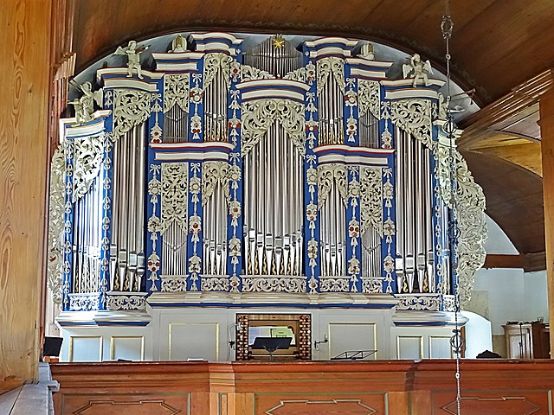
The Rhineland-Palatinate State Music Council quotes Christoph Wulf from the German Unesco Commission as saying that every organ is unique because it is built solely for the architectural space in which it is to be played. The highly specialized knowledge and special skills required for organ building and organ music have been developed by craftsmen, composers and musicians over thousands of years.
The German State Music Councils have jointly chosen an Instrument of the Year every year since 2008. Each federal state appoints its own patrons and has its own approach to achieving the transnational goal: To draw curiosity and attention to the many facets of the organ.
Picture above: Erwin Meier / wikimedia commons CC BY-SA 3.0
Andrea Marcon is Handel Prize winner
The artistic director of the Basel baroque ensemble La Cetra, Andrea Marcon, will receive the Handel Prize of the City of Halle in May 2021.
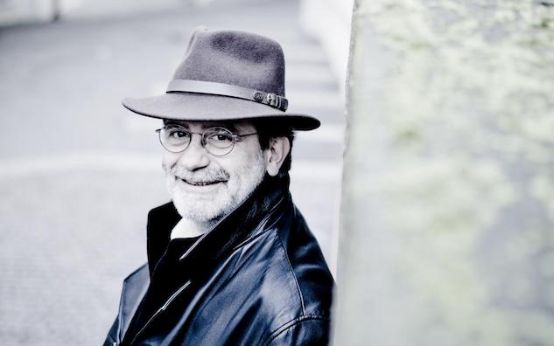
The Handel Prize of the City of Halle (Saale) is awarded to individuals or ensembles for special artistic, scientific or cultural-political achievements in connection with the international cultivation of Handel in Halle. It is an unendowed honorary prize.
Andrea Marcon studied at the Schola Cantorum Basiliensis. In 1997 he founded the Venice Baroque Orchestra (VBO), today one of the world's leading ensembles in the field of baroque music. Andrea Marcon has also been musical director of the La Cetra Barockorchester Basel since 2009 and artistic director of the Orquesta Ciudad de Granada since 2013/2014.
La Cetra and Andrea Marcon will perform Handel's opera "Giulio Cesare" at the Handel Festival on May 23. On May 20, the opera will be performed in Basel's St. Martin's Church as part of the "La Cetra in Basel" concert series.
Sobbe wins Prix Credit Suisse Jeunes Solistes
The Prix Credit Suisse Jeunes Solistes 2021 goes to recorder player Lea Sobbe. With her concert performance, the musician beat off competition from three ensembles and another soloist.
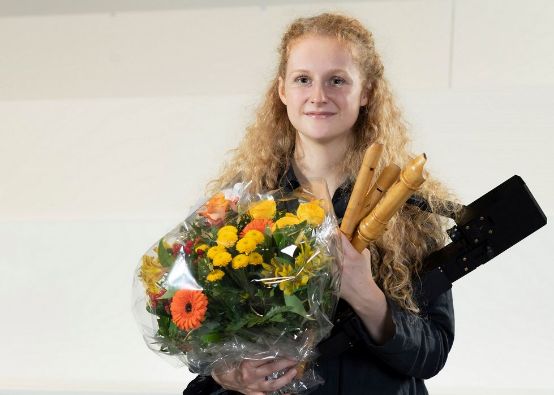
26-year-old Lea Sobbe is currently specializing in an advanced master's degree with Katharina Bopp at the Schola Cantorum Basiliensis, where she previously completed her first master's degree with Conrad Steinmann with distinction. In 2019, she received the Migros Culture Percentage Study Prize and, together with her ensemble Amaconsort, the BR Klassik Special Prize at the German Music Competition.
The Prix Credit Suisse Jeunes Solistes, which has been awarded since 2001, is an initiative of the Lucerne Festival, the Konferenz Musikhochschulen Schweiz (KMHS) and the Credit Suisse Foundation. It is awarded every two years to a highly talented young musician. The award is endowed with CHF 25,000 and is linked to a performance in the Lucerne Festival's Debut series. Lea Sobbe's concert will take place on August 17, 2021 during the Summer Festival.
Pilot project of the Bavarian State Opera
The Bavarian State Opera is making the final report of a pilot project on the pandemic effects of increased audience numbers available.
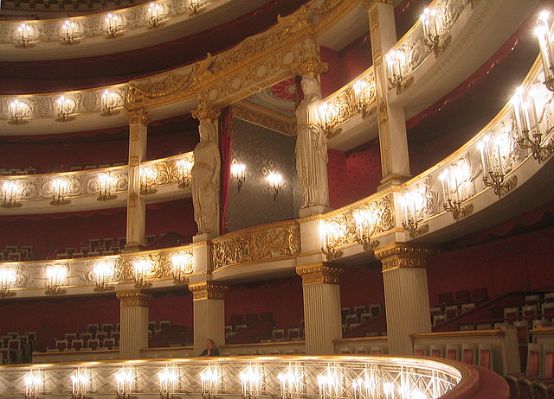
According to the State Opera, the report provides extensive findings on the increase in the number of spectators from 200 to 500 in the National Theater from September 1, 2020 to October 25, 2020. Under the given conditions of the pilot project (7-day incidence predominantly between 35 and 100 per 100,000 inhabitants), no increased probability of infection for the audience could be determined.
The report was submitted by the Opera to the Bavarian Minister President and the responsible state ministries for science and art as well as health and care.
Link to the report:
https://www.staatsoper.de/media/content/PDFs/Presse/Bayerische_Staatsoper_Abschlussbericht_Pilotprojekt_VF__3._Dezember_2020_.pdf
Notturno for piano and viola
Beethoven every Friday: to mark his 250th birthday, we take a look at one of his works every week. Today on the Notturno for piano and viola in D major op. 42 (Hess A 13).

It is probably common knowledge that Beethoven was not only a composer, but also an outstanding pianist and as such successfully introduced himself to the music salons of the nobility upon his arrival in Vienna. The fact that he also took violin lessons from Wenzel Krumpholz (1750-1817), who was born in Bohemia and grew up in Paris, would have been lost in the maelstrom of history had it not been for Ferdinand Ries in his Biographical Notes (1838): "Beethoven was still taking violin lessons from Krumpholz in Vienna, and at the beginning when I was still we still sometimes played his sonatas together with the violin. But that was really terrible music, because in his enthusiastic zeal he didn't hear when he put a passage into the appliatura incorrectly."
I wonder if Beethoven was at home with the same fire on the viola, which he played in the Bonn court orchestra at the age of 18? In any case, his "Dienstbratsche" has survived to this day. Apart from the instrument's natural role in the orchestra or in chamber ensembles such as the string quartet and string trio, however, Beethoven (like almost all of his contemporaries) did not compose a complete work in which the viola is obbligato. The singular Notturno op. 42 (for piano and viola) is also only a foreign arrangement of the Serenade op. 8 for flute, violin and viola. It was probably made by Franz Xaver Kleinheinz (1765-1832), who worked as a piano teacher in Vienna at the beginning of the 19th century. According to the conventions of the time, however, he remains unnamed on the title page. In the small print, however, there is the addition "revûe par l'Auteur"which Beethoven also insisted on in a letter to the publishers Hoffmeister & Kühnel dated September 20, 1803: "the translations are not from me, but they are from me durchand have been completely improved in places, so don't tell me that you're writing that I've overlooked it, because otherwise you're lying and I wouldn't have the time or patience to do so."
The arrangement, which appeared at the beginning of 1804 as an independent opus 42, is certainly interesting. The original texture was transferred to the piano; although the viola is given an independent part, it does not function as the leading melody instrument (also in consideration of its middle register). Thus the nocturne remains a hybrid in terms of the movement, but produces an idiosyncratic, highly attractive sound effect (especially on period instruments).
Listen in!
Chavaz becomes general director in Magdeburg
Julien Chavaz, born in Bern in 1982 and currently director of the Neue Oper Fribourg, will become General Director of the four-genre Theater Magdeburg. He succeeds Karen Stone in the post for the 2022/2023 season.
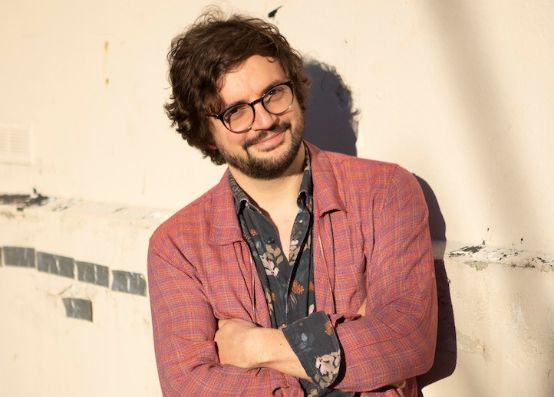
As an assistant, Chavaz has worked with renowned directors on productions in Switzerland, the Netherlands, France, Germany and the USA and has staged his own productions beyond Switzerland in recent years. In 2018, he staged Shostakovich's "Moscow, Cheryomushki" in Paris, nominated by Le Monde as the best production of the year.
Theater Magdeburg is a four-section theater with its own ensembles for musical theater, ballet, concert and drama. It was created in 2004 from the merger of the Theater der Landeshauptstadt and the Freie Kammerspiele. Julien Chavaz will lead Theater Magdeburg as General Director for five seasons from August 1, 2022.
La relazione generosa
Elisa Bortoluzzi Dubach and Chiara Tinonin have published the first handbook in Italian on philanthropic relations. Part of the proceeds from the sale will be donated to cultural organizations.
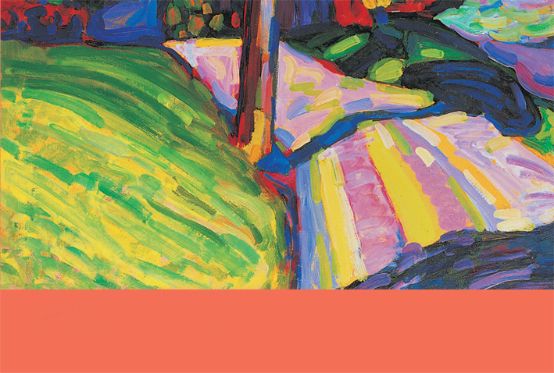
For the publication of La relazione generosa writes the Conservatorio della Svizzera italiana:
"Why does the generosity of patrons and philanthropists play such an important role in addressing the challenges of increasingly complex societies? What are the most common attitudes and behaviors of patrons and people seeking philanthropic donations? How can collaboration with patrons be successfully organized?
Answers to these and many other questions the new book La relazione generosa - Guida alla collaborazione con filantropi e mecenati [...] in which insights from various disciplines are gathered and philanthropy is made a privileged object of study. Approaches from psychology, neuroscience and behavioral economics are addressed in order to bring the philanthropic project to life.
The first complete handbook on philanthropic relations in Italian comprises nine chapters and an appendix dedicated to the new development paths of the sector. Within each chapter, checklists complement the coverage of the contents, so that the reader can immediately apply the various methodological criteria when working with patrons. The handbook provides a large amount of empirical information that effectively delivers the essential information without making it difficult to read. The text can also be consulted chapter by chapter, depending on the reader's needs, to shed light on specific aspects. The book has been written with all those who work with patrons in mind: Philanthropy specialists, communications and marketing professionals, as well as students and other interested parties.
In order to support creative artists who have been hit hard by the Covid-19 pandemic, the authors are donating the proceeds from the sale of the first edition of the book to the Orchestra Senzaspine [from Bologna] and the Solidarity fund for students at the Music Academy of Italian-speaking Switzerland, Lugano."
Loan for Albani Music Club
The City of Winterthur is granting the Albani Music Club an interest-free loan of CHF 100,000 for the purchase of the property at Steinberggasse 16, thus helping to secure the Albani's long-term existence.
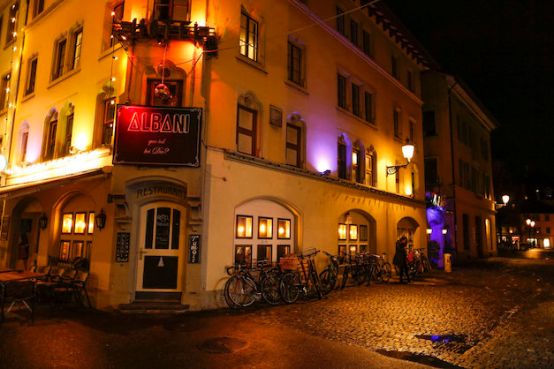
The City Council supports the efforts of Albani Music Club AG and the Albani Music Club Association to secure the long-term existence of the music club by acquiring the property at Steinberggasse 16. Albani Music Club AG has since exercised its right of first refusal and acquired the building in November. It is now planned to set up a real estate company to take over the property.
In addition to private investors, the Albani Music Club Association will also be a shareholder in this real estate company. To financially support this investment, the Albani Music Club Association will be granted an interest-free loan of CHF 100,000, which is to be repaid in annual installments of CHF 10,000 from 2026.
Impending end for singing
According to media reports, the Federal Council is considering banning singing outside the family. The choral scene is resisting further restrictions.

The Swiss Music Council informs the media on December 3:
"Singing was practically banned at the end of October as part of stricter measures against the coronavirus, with a few exceptions. Now the Federal Council apparently wants to restrict singing even further. There is a great deal of anger and incomprehension among the associations affected.
When singing was effectively banned at the end of October, there was great consternation in the Swiss singing scene. Choirs in particular felt that they were being labeled as particularly dangerous sources of infection. The IG CHorama, the association of all choral organizations, had developed effective protection concepts in the summer to enable safe choir rehearsals and performances. Experience up to the end of October clearly showed that these concepts really do work.
Now, according to media reports, the Federal Council apparently wants to go one step further and ban singing outside the family circle altogether. This would mean that children and young people would also no longer be allowed to receive single lessons at elementary school, that even the priest would no longer be allowed to sing in church services or that singing lessons at music schools would also no longer be possible.
Until now, the choral scene has mainly been annoyed that the focus in the music sector has only been on singing, but now despair is slowly but surely spreading if further tightening measures actually come into force. This would also fully affect the area that is central to the future of singing: young talent. This includes singing lessons at elementary and music schools, which are an important element in promoting young talent.
The choral scene in Switzerland is doing its part to combat the pandemic with functioning protection concepts and disciplined implementation. It is therefore incomprehensible to them why, for example, playing football is still permitted for children and young people under 16, but singing for the same age group is not. This gives the impression of arbitrariness, as there are simply no substantiated facts to prove that singing is supposed to be more contagious than other activities when applying the protection concepts.
The choral scene was already hit in the heart at the end of October. Its representatives, whether lay, professional or educational, are therefore urging the Federal Council to refrain from any further-reaching measures and instead to finally involve the choral associations in the development of an exit strategy."
Support for Digital Concert Experience
The Digital Concert Experience research project involving the University of Bern is dedicated to the impact of digital concert formats. The international research project is supported by the German Music Council.

The research project follows on from another large-scale study by the same research group entitled Experimental Concert Research in cooperation with Radialsystem V and the Pierre Boulez Saal in Berlin. This involves measuring the concert experience by investigating the aesthetic experience of the music by means of detailed pre- and post-interviews, measurements of heart rate and skin conductance, movements and emotional states, among other things.
The plan is to later contrast the effect of analog concert formats with the effect of digital concert formats. The preliminary study for the current project is now underway and the main study will begin in January 2021. The research partners are Zeppelin University, the Max Planck Institute for Empirical Aesthetics, the University of Bern and the University of York.
Further information and the opportunity to take part in the experiment:
www.digital-concert-experience.org.





